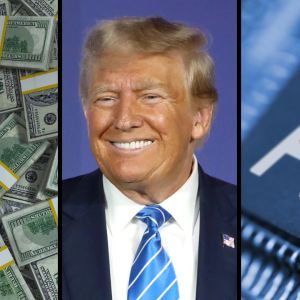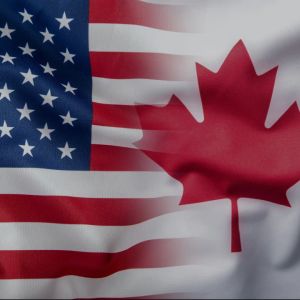On Tuesday, at his Florida estate Mar-a-Lago, president Donald Trump announced a $20 billion deal with Damac Group’s Hussain Sajwani to build state-of-the-art AI data centers across America. Trump wasted no time hyping up the announcement. The project’s first phase targets eight states: Texas, Arizona, Oklahoma, Louisiana, Ohio, Illinois, Michigan, and Indiana. These AI-powered data hubs, according to Trump, will put America at the top of the global tech ladder. “This is how we stay on the cutting edge of artificial intelligence and advanced technology,” Trump said, standing in front of cameras at his luxury resort. What $20 billion buys Sajwani said, “We’re planning to invest $20 billion, maybe even more if the market allows.” The hubs will handle everything from powering advanced machine learning systems to crunching massive datasets for industries ranging from healthcare to self-driving cars. But the deal wasn’t just about the cash. Trump promised to cut red tape, fast-tracking the permitting and environmental approvals to get these projects moving. He claimed his return to power has inspired foreign investors like Sajwani to pump money into the U.S. economy. Trump is already pointing to this deal as evidence of the “economic revolution” he promised during his campaign. This isn’t the first tech megadeal the president has closed since winning the election. In December, he stood shoulder-to-shoulder with SoftBank’s CEO, Masayoshi Son, to announce a mind-blowing $100 billion investment plan over the next four years. Trump’s message was clear: under his leadership, America will become the ultimate destination for tech and innovation. His economic playbook is basically, slash corporate taxes, roll back regulations, and push foreign companies to build on American soil. Trump’s hardline approach—using tariffs to protect U.S. industries and threatening penalties on companies that manufacture overseas—is scaring some business leaders. But others, like Sajwani and Son, see it as a golden ticket to tap into the world’s largest consumer market. Trump has also pledged to unleash all forms of energy—fossil fuels, nuclear, and renewables alike—to meet the surging demands of AI infrastructure. Nvidia’s CEO joins the party While Trump and Sajwani are pouring billions into infrastructure, Nvidia’s CEO, Jensen Huang, is eyeing how these developments could affect his company’s monster growth. Nvidia is the world’s top AI chipmaker, and has been at the forefront of AI hardware innovation. In a recent Bloomberg interview , Huang said he’s eager to work with the new administration, which hasn’t reached out to him yet. “We’ll provide as much insight as we can,” he said. Trump’s trade policies could make or break Nvidia’s global ambitions. The company already faces tight restrictions on selling its high-powered chips to China. If Trump doubles down on tariffs, Nvidia may have to rethink its strategy. What Biden is leaving behind In its final weeks, the Biden administration is rushing to roll out new rules to make it easier for companies to get permits for geothermal energy projects. These rules are part of a bigger push to boost infrastructure for AI data centers, according to insiders. The plan, which could drop as early as next week, includes setting up a competitive system for building data centers on federal land and speeding up approvals for geothermal and nuclear energy projects. The details are still being finalized, and the timeline might shift, said sources who spoke anonymously. But Trump has hinted he may reverse these policies with the stroke of a pen. Biden’s executive orders on AI safety and security are also in Trump’s crosshairs. While Biden sought to regulate the industry, Trump’s approach focuses on growth, competition, and speed. Land a High-Paying Web3 Job in 90 Days: The Ultimate Roadmap



















